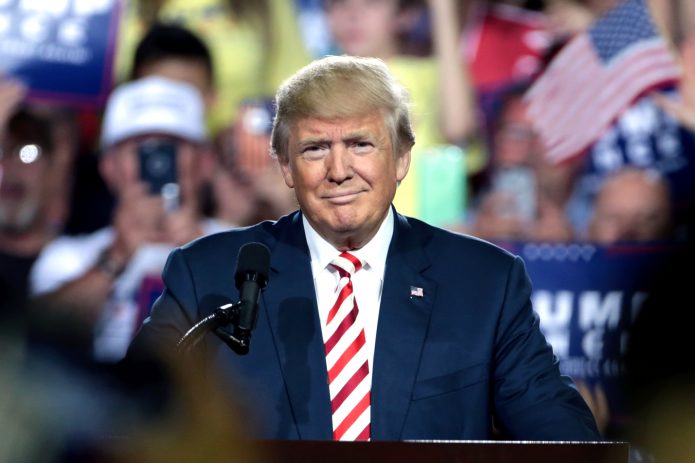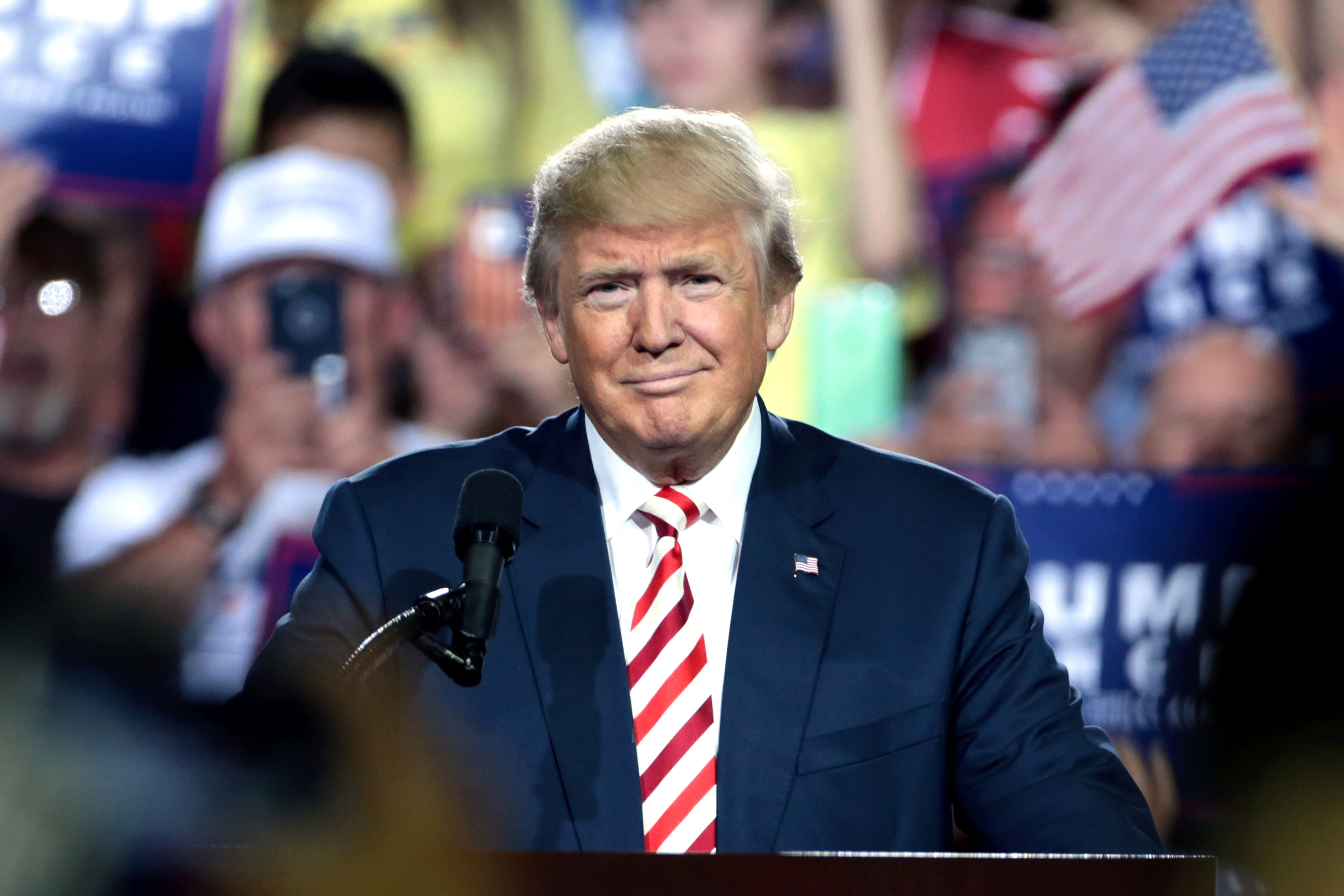
(Photo: Gage Skidmore/Flickr)
Donald Trump campaigned on the pledge to “Make America Great Again,” but he never did specify exactly who he wanted to make the country great for.
After a year in office, we can deduce from his actions that Mr. Trump was really only concerned about helping his greedy billionaire peers.
A year of Trump’s rule has done little for the well-being of working-class families. Meanwhile, the gap between the rich and poor has reached record-highs and are on track to continue to skyrocket.
Benefits for the Wealthy
The Trump era has seen stock market indices reaching new highs seemingly every month. Wall Street investors have been buoyed by excitement over the massive tax cut Congress delivered to the wealthiest households and most profitable corporations in December. Unfortunately, almost all of this increase in value in the stock market has gone to the top. The top 10% of households alone own more than 90% of all corporate stock.
In other words, the huge jump in stock prices that Mr. Trump tweets about regularly benefited nearly exclusively already wealthy people, not poor people looking to build their wealth.
And that tax bill that Mr. Trump was so proud to unveil? Four out of five of the tax cut dollars went to the top 1% of households. While low-income people will see a small uptick in their paychecks in the short term, those cuts expire in a few years while the breaks for the rich are permanent. Don’t get it twisted, the Trump tax cuts will likely go down as the biggest money grab in modern history – by the wealthy, for the wealthy.
It’s safe to say the Trump tenure has been boom times for those at the top. For the rest of the country, economic opportunity looks bleak.
And for the Rest of Us?
One in five households has zero or negative net worth. They live in Underwater Nation, the population of people precariously teetering on the edge of financial ruin. Millennials are slated to be the first generation in American history who will do worse financially than their parents. This was the case before Trump took office, but it’s increasingly obvious that Trump’s actions will make these problems worse, not better.
Fortunately, Mr. Trump has not been able to enact his full regressive agenda. He was unable to fully repeal the Affordable Care Act, thanks to massive civic engagement opposing him. He also failed to stop the investigation into his campaign’s possible collusion with Russia during the 2016 election. That investigation remains ongoing.
His tenure has been, however, not without pain for many. Millions of families live in terror worried about their undocumented family and friends as Immigration and Customs Enforcement (ICE), emboldened by Mr. Trump’s anti-immigrant speeches, conduct unprecedented raids. Most of these people enjoy little class-privilege.
In just a year, Trump managed to pass his “Muslim Ban,” blocking travel to six majority-Muslim countries, to threaten the world with nuclear war as he brags about his “button,” and to completely botch the response to Hurricane Maria in Puerto Rico where nearly half of the island’s people are still without power. There’s also the unquantifiable impact of Mr. Trump’s unique brand of diplomacy including endearing actions like referring to majority-black countries as “s-holes.”
Malaise … and Activism
In other words, Trump’s actions have done damage. And that’s to say nothing of the near constant malaise created in anyone following the news in response to the ubiquitous refrain, “Did you see what Trump tweeted?!”
Trump’s actions over the past year and over the course of his campaign have done little to inspire hope that his administration will do anything to help his non-wealthy constituents. A more hopeful future involves a groundswell of activists exercising their power next November to push Trump’s enablers in Congress out of office.
We saw a hint of this power at the recent one year anniversary of the Women’s March as well as in actions and demonstrations across the country over the past year. We’ll see much more of it going forward.
This piece was originally published on Class Action.
